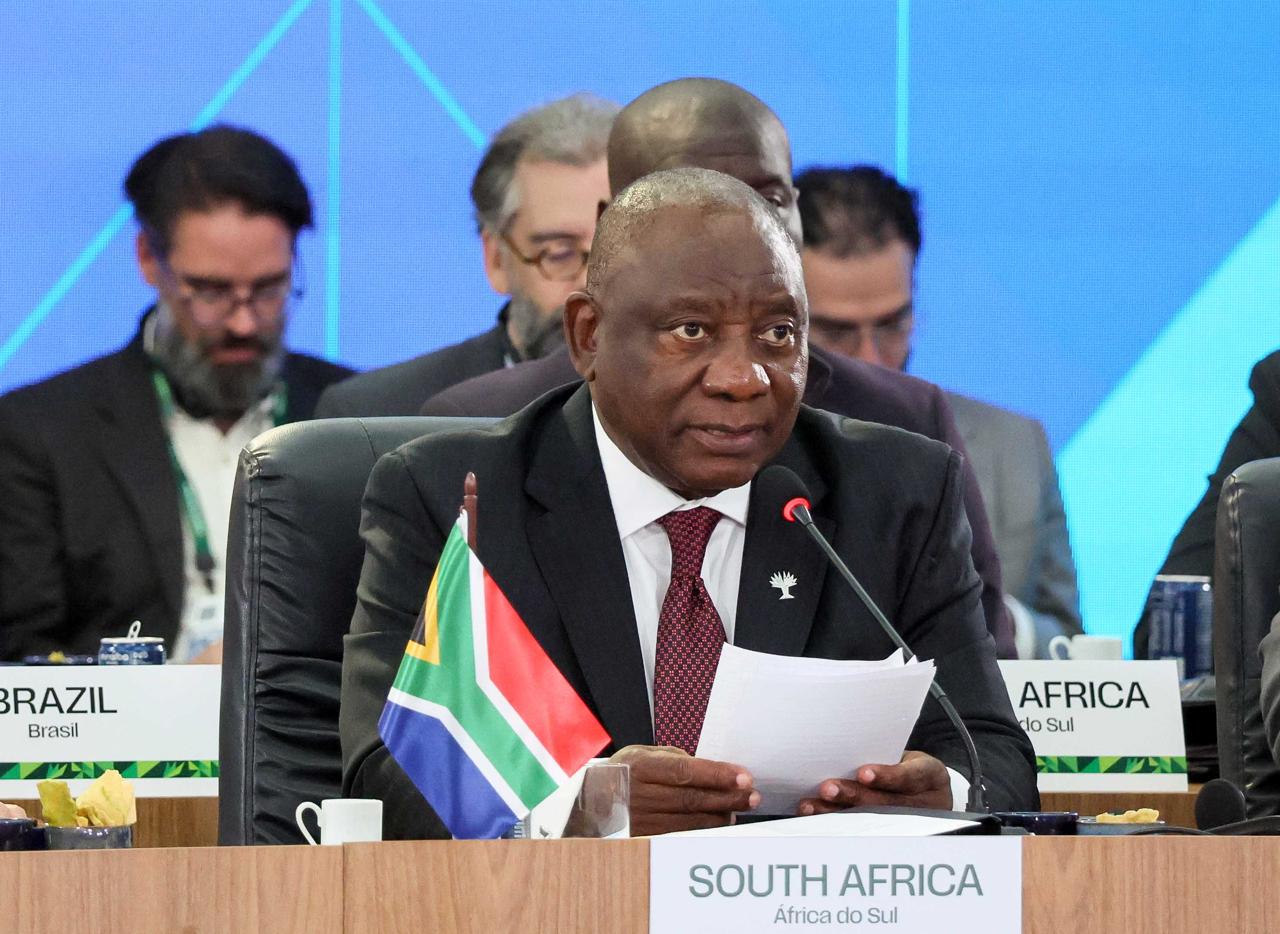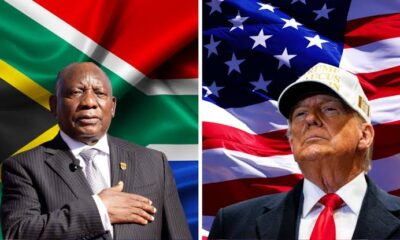Business
South Africa Faces Trade Shock as Trump Tariffs Threaten Agoa Benefits and Key Export Sectors

New US tariffs strike at the heart of South Africa’s export economy, with the future of Agoa hanging in the balance.
South Africa is facing a fresh economic storm as the Trump administration’s decision to slap a 30% blanket tariff on all goods entering the US from South Africa threatens to unravel the hard-won benefits of the African Growth and Opportunity Act (Agoa).
Effective August 1, this tariff bombshell has blindsided exporters, sparking fears of job losses, reduced foreign investment, and further pressure on an already fragile economy.
What’s at Stake: Cars, Citrus, and Jobs
While the US remains one of South Africa’s top trading partners, this sweeping tariff regime could cripple critical industries such as automotive manufacturing, agriculture, and minerals.
The move has been described by economists and trade analysts as “punitive”, with the worst impact likely felt in vehicle exports, wine, citrus, and processed food, all of which rely heavily on duty-free US market access.
“It’s a heavy blow,” said Professor Raymond Parsons from North West University’s Business School. “It wipes out what’s left of our competitive advantage under Agoa, just as the renewal of that deal is looking more uncertain by the day.”
Agoa on the Brink
Agoa, the 24-year-old preferential trade agreement that allows over 30 African countries to export goods to the US tariff-free, is set to expire in September 2025. Renewal negotiations are already fraught with geopolitical tension, with South Africa’s closer ties to BRICS nations reportedly adding friction to talks in Washington.
“Even if strategic minerals are exempted,” said Anchor Capital analyst Casey Sprake, “the overall deterioration of trade relations with the US could have long-term consequences for manufacturing investment and job creation.”
She estimates that while about 40% of South Africa’s exports to the US, like platinum group metals, manganese, and medical equipment—may escape the full tariff, that still leaves vital sectors like automotive and agriculture dangerously exposed.
Ramaphosa Pushes Back
President Cyril Ramaphosa hit back at the US decision, calling the 30% tariff “not an accurate representation of trade data.” He argued that South Africa maintains a 7.6% average tariff, and more than 75% of US goods enter the country duty-free, suggesting that the US move is retaliatory or geopolitically motivated rather than economically justified.
Data from the Office of the US Trade Representative shows that US exports to South Africa fell by 18% in 2024, while imports from South Africa rose 5% leading to a trade deficit of $8.8 billion, up sharply from $2 billion the year before.
A Push for Local Industrialisation
Some South African analysts, like Bongani Mankewu from the Infrastructure Finance Advisory Institute, are using the moment to call for greater self-sufficiency and local industrialisation.
“We’ll be punished until we realise that only local production and industrial independence can save us,” said Mankewu. “Relying on trade partners, whether it’s the US or BRICS without protecting domestic manufacturing is economic suicide.”
Mankewu criticised state investment institutions like the Public Investment Corporation for focusing too heavily on consumption rather than manufacturing growth.
What Now for SA Exporters?
With little clarity on whether exemptions or bilateral negotiations can water down the tariff decision before August 1, South African exporters are bracing for tighter margins, increased competition, and possibly layoffs.
This comes at a time when South Africa’s unemployment rate remains one of the highest globally, and confidence in economic leadership is already shaky.
“It’s not just about trade,” warned Sprake. “This is a message that South Africa’s geopolitical positioning has economic consequences and those consequences are arriving fast.”
Act or Absorb the Pain
As business and labour unions urge government to act swiftly, whether through negotiations with Washington or urgent industrial reforms at home, one reality is clear: South Africa’s trade future can no longer depend on goodwill alone.
Whether it’s a renewed Agoa, a pivot to BRICS, or a deeper commitment to homegrown production, the clock is ticking. August 1 is just the beginning.
{Source: IOL}
Follow Joburg ETC on Facebook, Twitter , TikTok and Instagram
For more News in Johannesburg, visit joburgetc.com



























